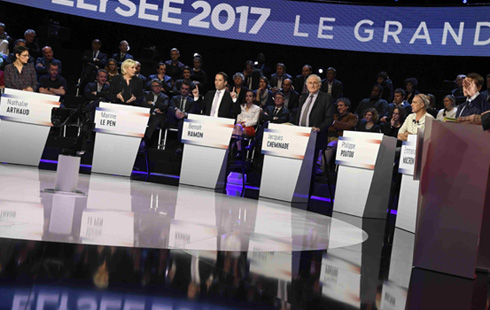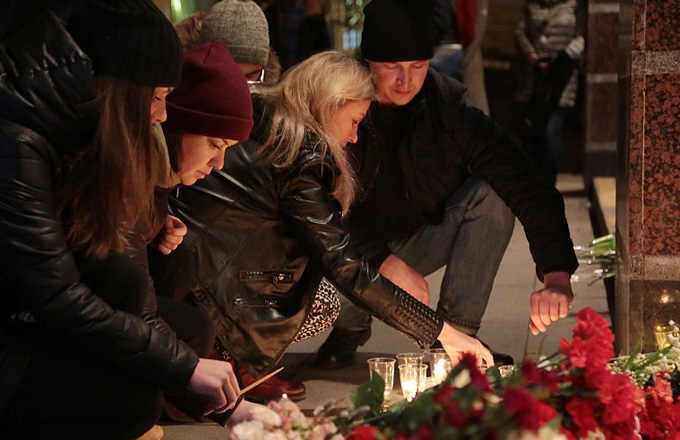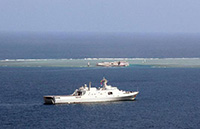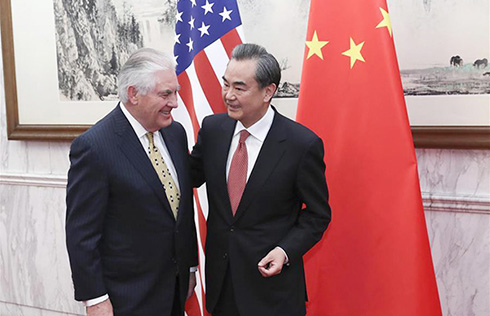Washington reaffirms defense of ROK
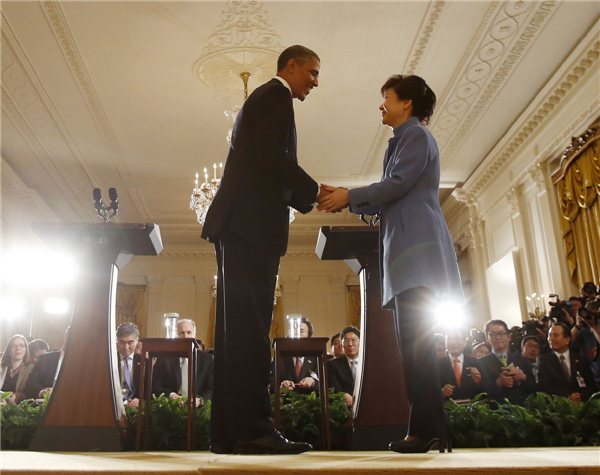 |
|
US President Barack Obama shakes hands with the Republic of Korea's President Park Geun-hye at the end of their joint news conference in the East Room of the White House. [Photo/Agencies] |
Washington on Tuesday reiterated its defense commitment to Seoul with both conventional and nuclear forces, vowing no concessions to the Democratic People's Republic of Korea after months of high tensions.
Observers said both the United States and the Republic of Korea have strategic and security concerns to strengthen their alliance, but it would not have a large influence over the situation on the Korean Peninsula.
US President Barack Obama and visiting ROK President Park Geun-hye reaffirmed their intolerance of Pyongyang's "threats and provocations" and emphasized the importance of continued strengthening of their deterrence against its nuclear and conventional weapons threat.
"If Pyongyang thought its recent threats would drive a wedge between South Korea and the US or somehow garner the North international respect, today is further evidence that North Korea has failed again," Obama said.
"The days when North Korea could create a crisis and elicit concessions - those days are over," Obama told reporters at a White House news conference with Park.
Obama said that he and Park agreed in talks that "we are not going to reward provocative behavior" but kept the door open to eventual talks if DPRK leader Kim Jong-un decides to embrace "a peaceful path".
Both Obama and Park called on the DPRK to take meaningful steps in return for engagement and assistance.
"Our two nations are prepared to engage with North Korea diplomatically and over time build trust," Obama said.
Meaningful steps
"But, as always, and as President Park has made clear, the burden is on Pyongyang to take meaningful steps to abide by its commitments and obligations, particularly the denuclearization of the Korean Peninsula."
Park, who is on her first foreign trip since taking office in February, said her administration will work with Washington to "induce North Korea to make the right choice through multifaceted efforts, including the implementation of the Korean Peninsula trust-building process" that she had spelled out.
ROK security largely depends on the US-ROK alliance, said Wang Junsheng, a researcher on East Asian studies with the Chinese Academy of Social Sciences.
"Since the tensions on the Korean Peninsula increased earlier this year, more and more ROK residents and officials called for strengthening the US-ROK alliance," he said.
The US defense commitment and nuclear umbrella is very important to Seoul, said Tao Wenzhao, a researcher on American studies with the Chinese Academy of Social Sciences.
Tao said the US-ROK alliance in the East Asia region is also very important to the US, which will continue its Asia-rebalancing strategy, because "both security threats and opportunities for economic growth are located in this region".





